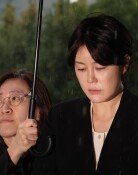More flexible job market and new technologies
More flexible job market and new technologies
Posted September. 27, 2012 06:00,
Korea`s job creation capability ranks 16th among the top 20 member countries of the Organization for Economic Cooperation and Development, according to an analysis by The Dong-A Ilbo Youth Dream Center and the global consulting company Monitor Group. Korea in the category is behind Ireland, which is suffering from high unemployment and a business slump, and just a bit better than Spain, Italy and Greece, three countries that form the epicenter of the Southern European debt crisis. The ranking was conducted on the 20 member states based on five categories: the number of jobs, potential to create jobs, risks in creating jobs, job crisis, and no possibility of job creation. Korea along with Japan fell into the category of "risks in creating jobs."
Korea ranked 20th in the two subcategories of employment structure and society and culture. Government institutions and regulation ranked 18th and job education 16th, which were also in the lower ranks. The country ranked 11th in industrial competitiveness, but a decline in this category would endanger the nation`s job creation capability.
The prospects are not bright. In Korea, employment largely depends on manufacturers, which are steadily relocating their plants overseas to secure price competitiveness. There is also the risk of jobless growth. Over the past five years, GDP growth was 24 percent, the highest in the OECD, but job growth was just 2.79 percent, ranking 14th.
The latest analysis highlights problems with Korea`s seniority-based compensation system and excessive job security. KT Chairman Lee Seok-chae said in a lecture to engineering students at Seoul National University, "The fundamental reason that the quality of jobs for young people is worsening is due to the stiff labor market." This analysis is in line with the Dong-A youth center`s evaluation. By excessively protecting staff, workers are paid more than their productivity. In turn, companies are turning to outsourcing, leading to an increase in the number of temporary workers. Lee said aged employees with lower productivity should be turned to outsourcing to establish a virtuous cycle in labor.
Much can be learned from countries with quantity and quality jobs. Switzerland has developed its tourist and financial industries on top of its traditional dairy and manufacturing sectors. Germany achieved labor reform and on-the-job training led by companies. The Netherlands has achieved balanced growth in manufacturing and services. Denmark is famous for high labor flexibility. KT Chairman Lee stressed the need for drastic deregulation in new technologies in the education, medical and information communications sectors. The future of Korean employment depends on a more flexible labor market and new technologies. This is easy to say but carries a significant meaning.
Headline News
- N. Korea redefines S. Korea as ‘hostile state’ in revised constitution
- Samsung develops graphic DRAM with industry-leading capacity and speed
- Three questions allegedly leaked via text message during Yonsei Univ. essay test
- China to inject 340 trillion won in loans to support real estate sector
- Dodgers beat Mets to take 2-1 lead in NLCS







